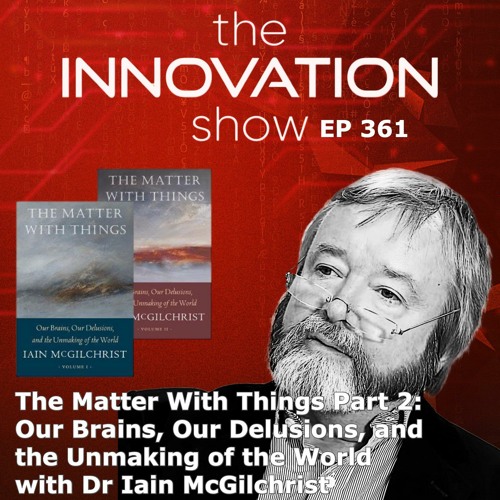
The enduring legacy of the Greek philosophers was therefore the primacy of things, and Western thought followed this path without much of a contest for more than two millennia.

As Iain McGilchrist writes in his superlative new book The Matter With Things, on this view the world was “composed of a single timeless unchanging unity, in which true creativity, individuation, and history come to be merely illusions, or at least fallings away from an ideal.” 1

Together with their more concrete brethren, these realities were the fundamental currency of whatever it is that we know. What mattered were things-the material and timeless entities of which the universe was composed, and from which could be inferred (thanks to another Greek invention, the definite article) the existence of abstract realities. Plato, who took the path of Parmenides not Heraclitus, was another who thought that change was a delusion. Parmenides by contrast went so far as to deny the existence of change his celebrated pupil Zeno argued that an arrow could never travel from A to B (and so it follows, as a character in Tom Stoppard’s play Jumpers deduced, that Saint Sebastian died of fright). But his vision of eternal flux and movement was contested among the pre-Socratic philosophers. I n the beginning, Heraclitus contemplated the nature of reality and saw that everything flowed: πάντα ῥ εῖ ( panta rhei), he wrote, cleverly remembering the rule that the neuter plural in Greek takes a singular verb.


 0 kommentar(er)
0 kommentar(er)
